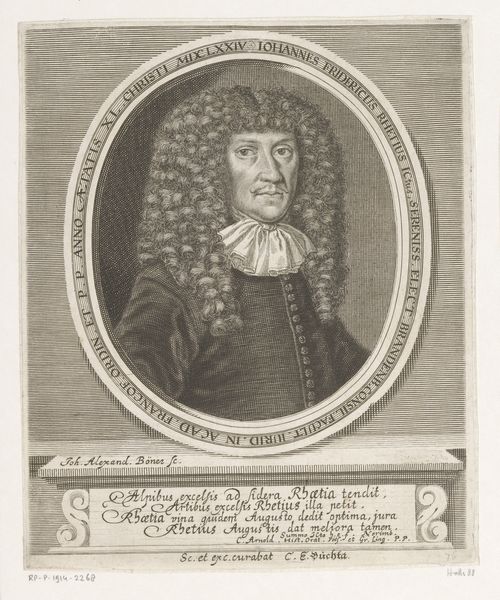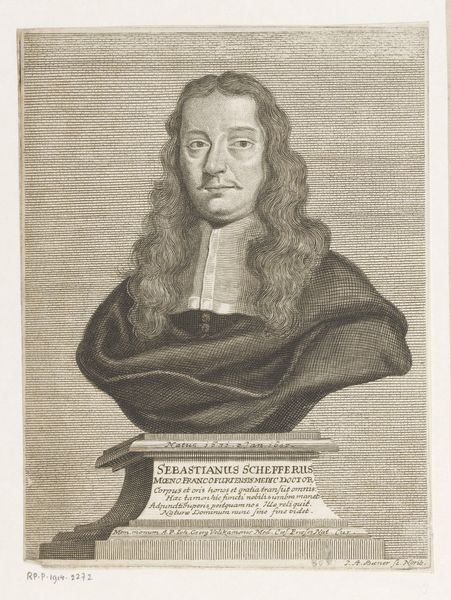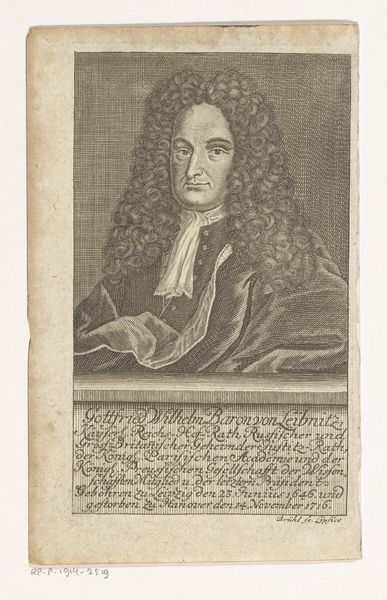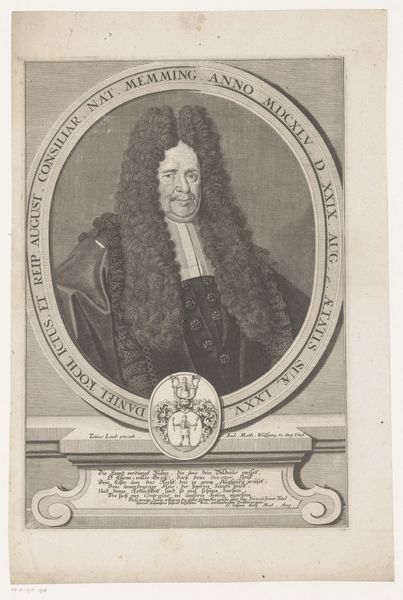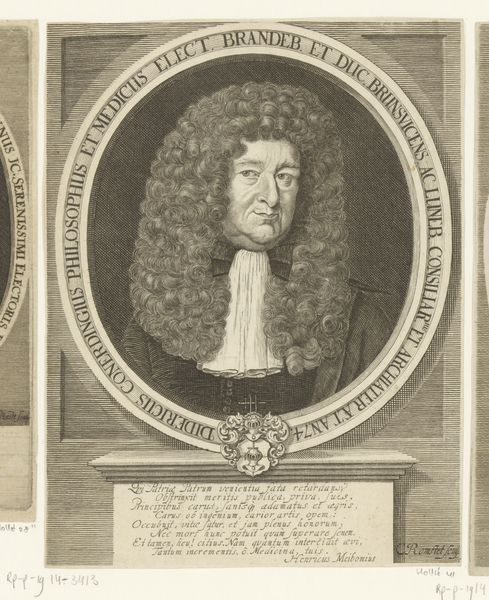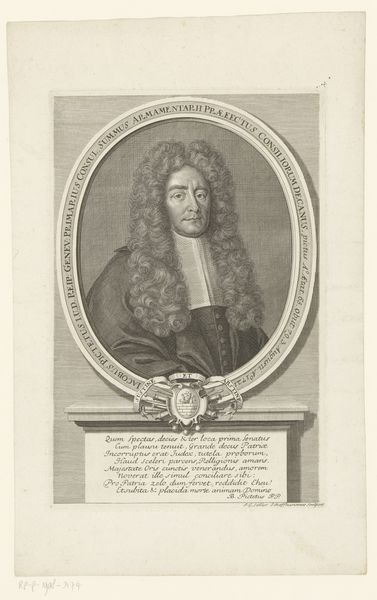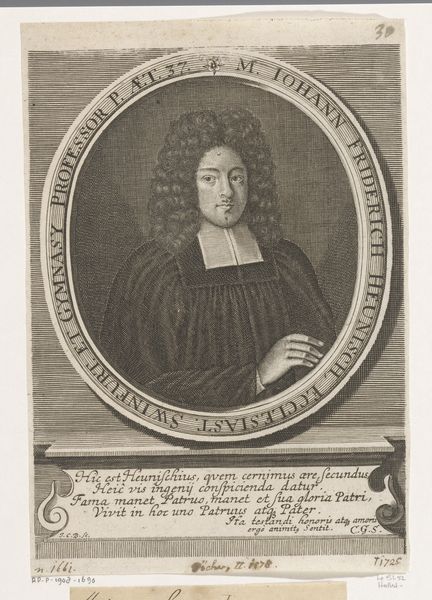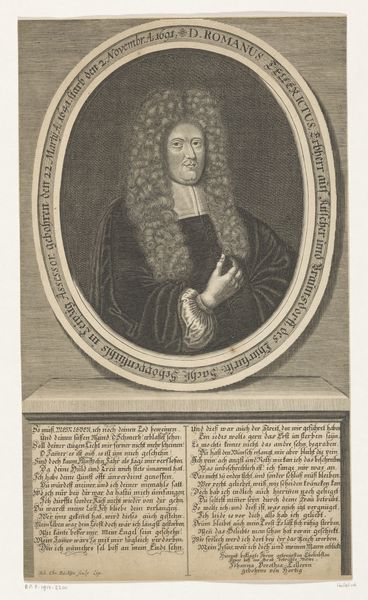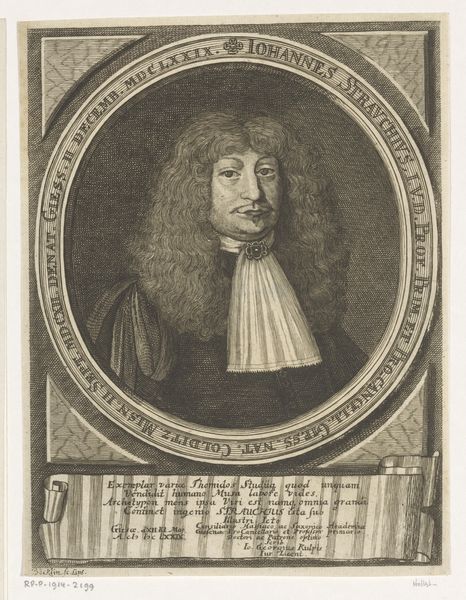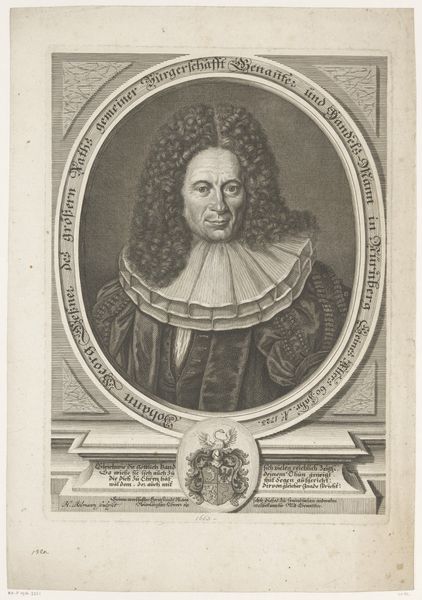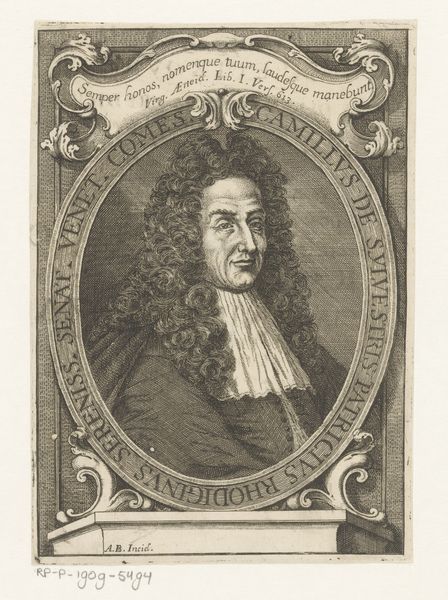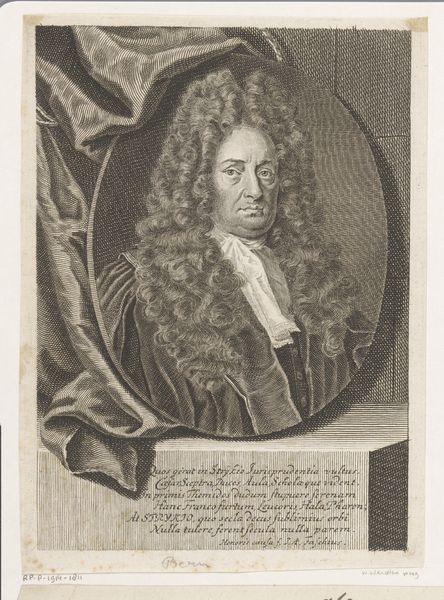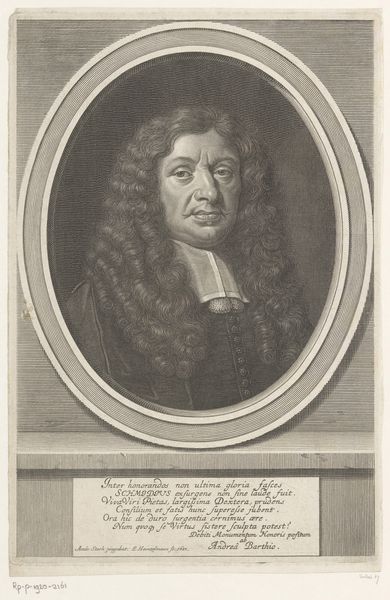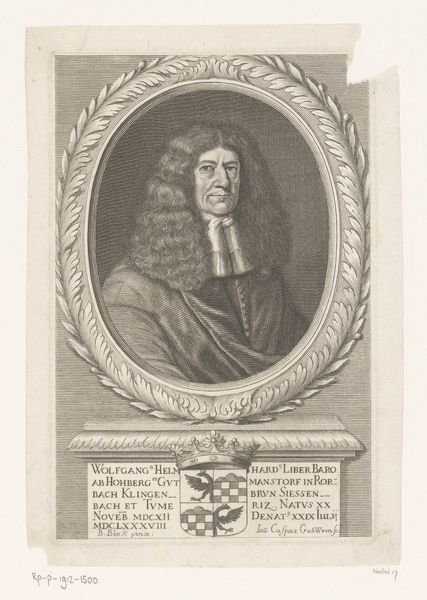
print, engraving
#
portrait
#
aged paper
#
toned paper
#
baroque
# print
#
old engraving style
#
portrait reference
#
portrait drawing
#
history-painting
#
engraving
Dimensions: height 204 mm, width 142 mm
Copyright: Rijks Museum: Open Domain
Editor: Here we have Johann Christoph Sartorius’s “Portret van Gabriel Clauder,” an engraving from sometime between 1691 and 1739. There's a stillness to this portrait, but something about the sitter’s gaze makes me wonder what he was thinking. How do you interpret this work? Curator: It's fascinating to consider this engraving as a document of power and knowledge during the Baroque period. Think about the role of portraiture in solidifying social hierarchies. What does the elaborate wig and formal attire communicate about Clauder's position within society? Also consider how the very act of creating and disseminating his image through print served to further establish his presence and authority. Editor: So, the image itself is a form of propaganda, even? Curator: Propaganda is a strong word, but not inaccurate. It depends on how we define the term. Perhaps a softer approach might define it as strategic image-making aimed at cultivating a specific persona. Notice, for instance, the inscription beneath the portrait. How might the text shape or reinforce our understanding of Gabriel Clauder? How might it dictate our access to, and comprehension of, the image? Editor: The inscription seems to emphasize his professional achievements… as if reinforcing his importance in society. But who was this for? Curator: Exactly! Who was meant to see it, and what was the intended impact? Thinking about the socio-political context of the late 17th and early 18th centuries allows us to delve into these important considerations concerning how identities are constructed and circulated. Editor: It's amazing how much a single portrait can reveal about power and status. Thanks! Curator: Indeed! And how our reading of that image remains conditioned by the social dynamics that persist in our world today.
Comments
No comments
Be the first to comment and join the conversation on the ultimate creative platform.
